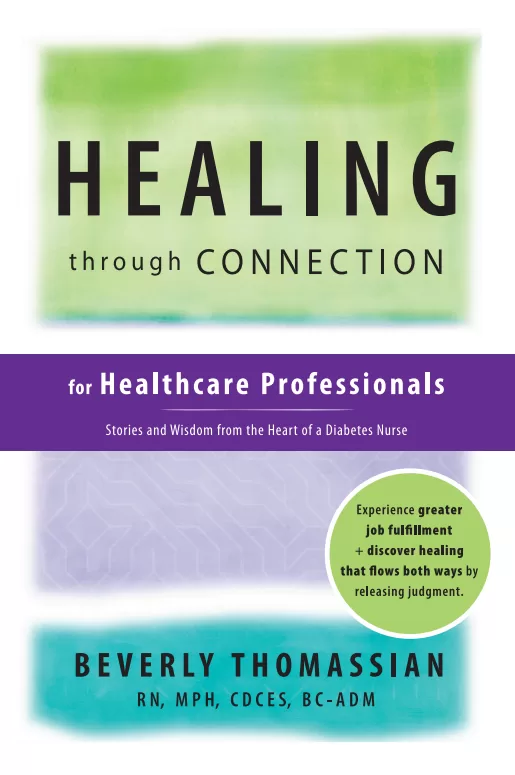The paramedics rushed me into the emergency room. They gave report as the nurse busied herself with wrapping a blood pressure cuff around my arm and clipping a pulse oximeter to my index finger. With the sloppy arrangement of bandages around my head, I looked like a pale mummy dressed up for Halloween. The oral surgery from earlier that day caused my lips and mouth to swell, making me look like I had recently survived a brawl.
In an instant, I felt like I might pass out, and fear grabbed at my chest. I managed to croak out to the nurse, who was running back and forth between two rooms, “How would you know if I went unconscious?”
She glared at me and said, “Your blood pressure is fine.” Then she sighed and peppered me with the first questions she had asked since I arrived. “Are you on drugs?”
“No.”
“Do you have a mental illness?”
“No.”
“Have you been drinking?” she asked.
“No, I had oral surgery…”

My attention waned as my brain drifted off to sleep. Suddenly, a loud beeping filled the room as the blood pressure alarms began to sound. The nurse shifted into fast motion, dropped the head of the gurney, and deftly jabbed me with a 16-gauge intravenous (IV) needle. She ran a liter of normal saline, full throttle, into my parched body. This nurse knew her way around trauma. She was an emergency room hotshot, adept at triage, and could probably have started that IV blindfolded and with a full bladder. But I couldn’t figure out why she was so annoyed with me. Why couldn’t she comfort this frightened person in her care?
As a veteran nurse and a person with a handful of chronic conditions, I have witnessed healthcare professionals with cutting-edge expertise neglect to make a connection with the very people they are working so hard to serve. I have also encountered healthcare professionals with minimal experience making an earnest effort to connect and comfort individuals in their care. As a patient who has experienced enough ER visits and hospital stays to last a lifetime, I feel a deep and persistent gratitude to those caregivers who grabbed my hand and reassured me that I would be okay.
After receiving a few bags of saline, my low blood pressure—caused by severe dehydration—stabilized, and I quickly recovered. Besides my swollen face from oral surgery and bruised ego, I felt like my old self and easily joked around with the next nurse who took over my care. But inside, I felt embarrassed and angry. I kept wondering why the first nurse had not comforted the frightened and vulnerable person in her care instead of assuming I was suffering from mental illness, using drugs, or drinking. My pride was battered. I felt as though she stood in judgment of me, with a laser-like focus on asserting her clinical skills and knowledge.
With time and reflection, I began to view this event from a more nuanced perspective. There could be other factors contributing to her seemingly indifferent approach. Perhaps her shift was ending and she was eager to return home to her family. She might be struggling with burnout, like many of our healthcare colleagues. Maybe I reminded her of a past patient who was especially needy. Alternatively, she could be living with unresolved trauma that was in search of healing.
As a caregiver, can you recognize a part of yourself in this nurse?
Have you ever responded to a patient in a way that didn’t match your values and intentions? Maybe you were struggling with pain in your life, and you had nothing left to give. Or it could have been that a person’s fear and neediness triggered an unexpected response from you that caught you off guard. Perhaps you assumed the person in your care was drug-seeking or somehow trying to manipulate the situation without having all the facts. You’re not alone if you’re saying “yes” to those questions.
After 40 years as a nurse and diabetes specialist, I have responded to patients in ways that contradicted my values and intentions. I still carry a sense of regret for the times I have judged or treated others unfairly. However, the silver lining is that my missteps helped me forge a new path by recognizing where that “judgy” side of me exists and actively working to heal it. This shift to accepting people as they are and opening my heart to make meaningful connections has unexpectedly served as a healing balm to my most profound areas of pain. In return, I can be more present with people’s suffering and receive them as they are at that moment.
Offering acceptance without judgment may be one of the greatest gifts you can extend as a healthcare professional —to those you care for and yourself. This action creates space for mutual healing, flowing in both directions—from healthcare professional to patient and back again.

As a healthcare professional, you bring your own life experiences, traumas, wounds, triggers, blind spots, beliefs, and inner narratives to each patient encounter.. We all do. Gabor Maté, a renowned physician and author, has shared his journey of recovering from trauma through his work and personal reflections. His recovery was deeply tied to understanding the roots of his trauma, developing self-awareness, and engaging in practices that foster healing. Dr. Maté emphasizes that “trauma is not the event itself, but the wound left by the event—how the experience disrupts one’s sense of self and connection to others.” He believes sharing one’s story and connecting with others’ experiences can be a powerful way to heal.
My life story begins with the hope of living the American dream but quickly unravels with life events I did not ask for or anticipate. With a determined focus on my future, I reclaimed my life and marched forward, holding my pain inside. I figured that if I worked hard enough and finally proved myself worthy, these feelings of failure would slip away into the darkness from whence they came.
By the time I reached 50, I thought I had accomplished my goal and wrestled the inner critic to the ground. But that’s when my body stopped me cold in my tracks and forced me to look deep inside to start the healing process.
This book is an emancipation from those stories not told while providing a path toward healing. I aim to share these hidden moments as a commitment to healing myself and giving YOU permission to share your story. I know I am not the only healthcare professional who has endured painful experiences and had to keep going. We all have stories of suffering and triumph, desperation and survival, grief and reconciliation.
These lived experiences may even be what led you to enter the healthcare field in the first place.
Your Healing Journey Starts Here
At the intersection of healer and caregiver, a meeting of human experiences takes place. It’s an opportunity to connect with genuine curiosity and compassion—to see the person before you without preconceived notions or judgment.
This book is both a reminder and a roadmap; an invitation to care for yourself with the same compassion you offer others. It provides a rare perspective on mutual healing: As we help others heal, we also heal ourselves. Within these pages, you’ll find a toolbox for exploring your truth, tapping into your emotions, and cultivating creativity. Together, we’ll explore the often-overlooked connection between your own lived experiences and those of the individuals in your care.
This book speaks directly to the heart of caregiving. It shows how, when you balance the science of medicine with the humanity of connection, every interaction becomes an opportunity for transformation, growth, and healing.










